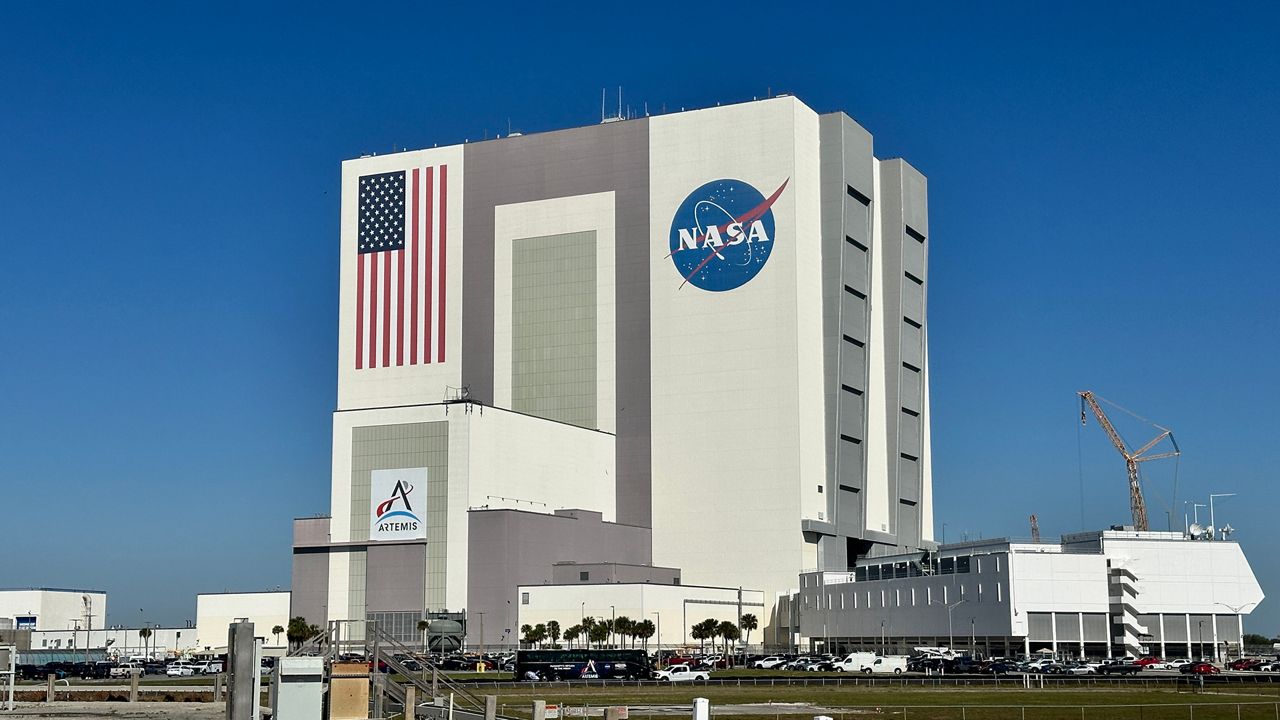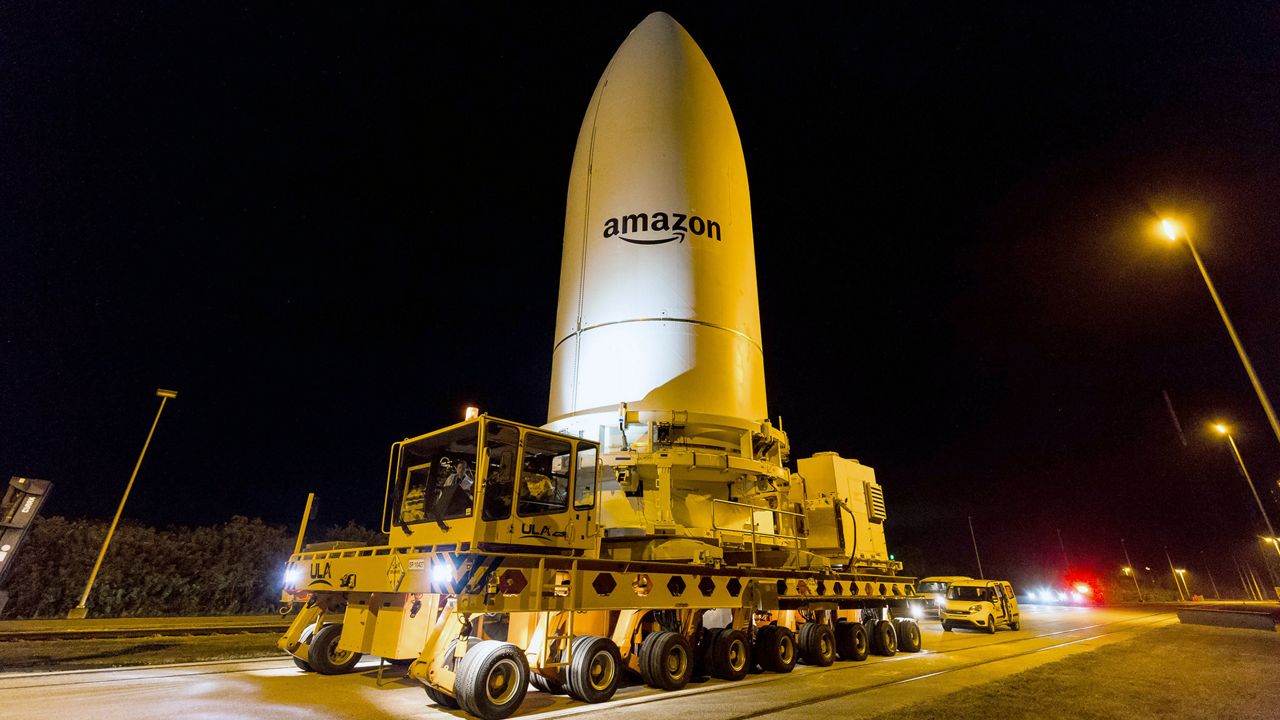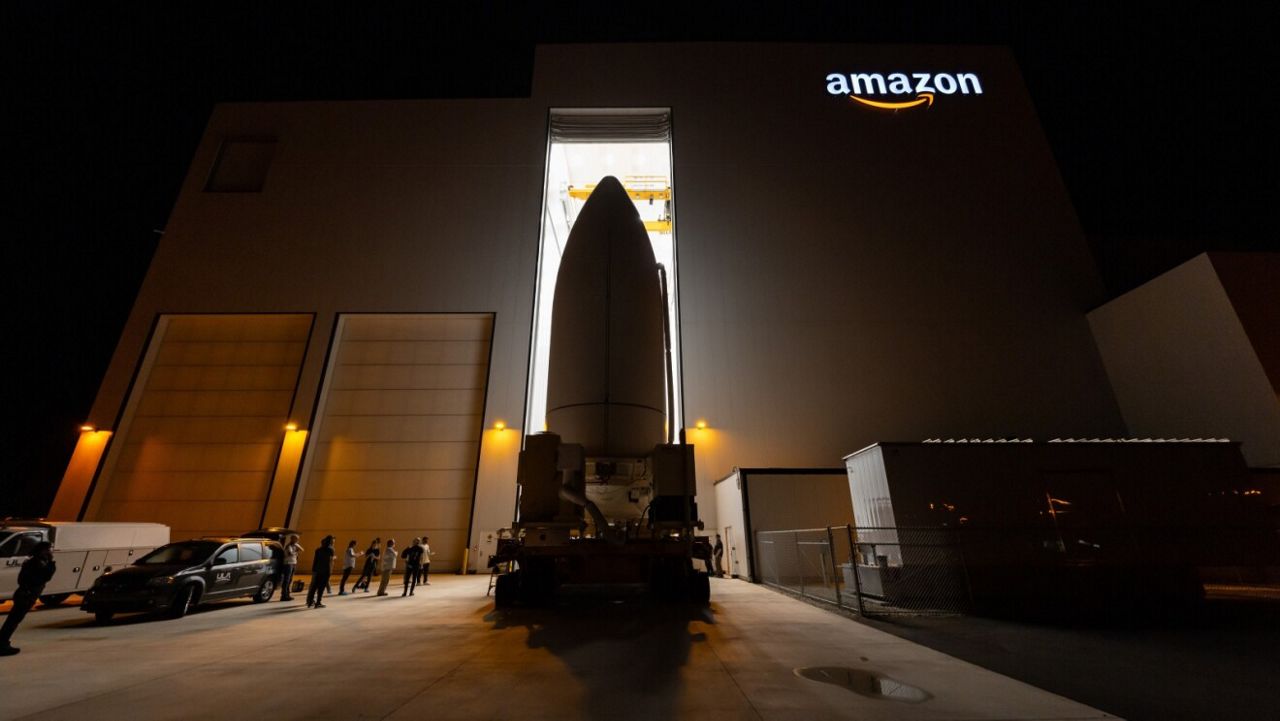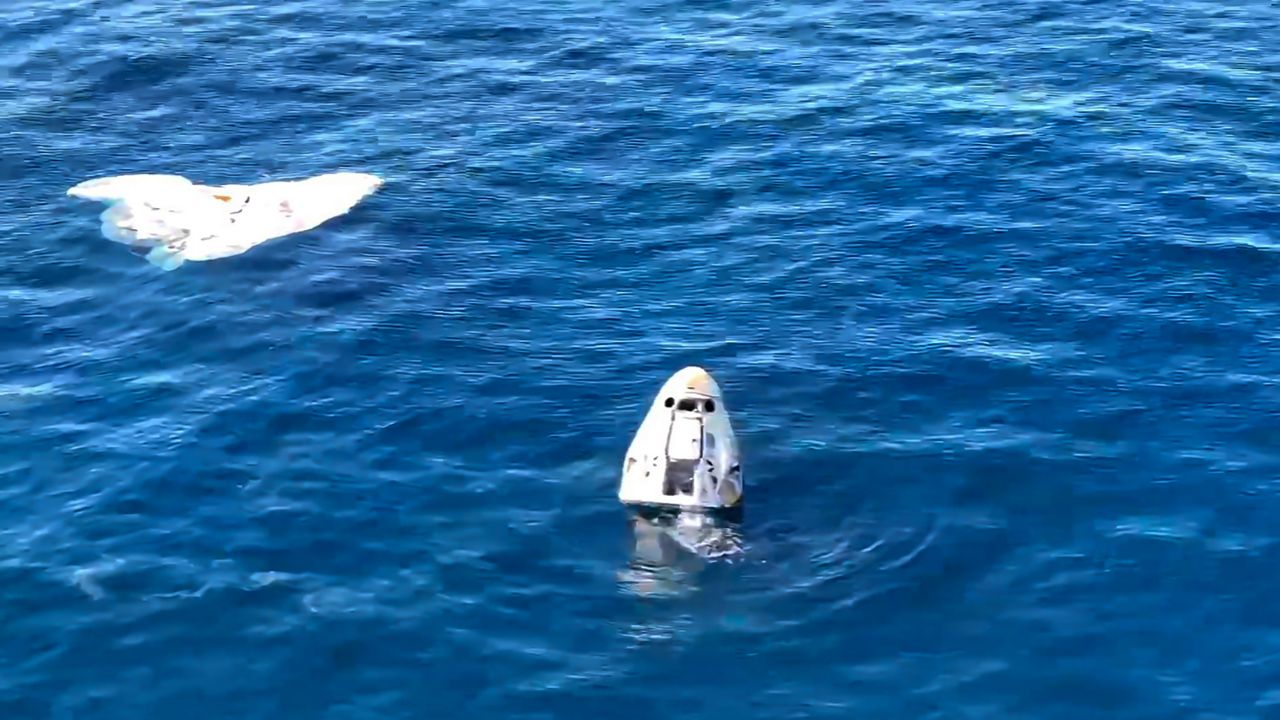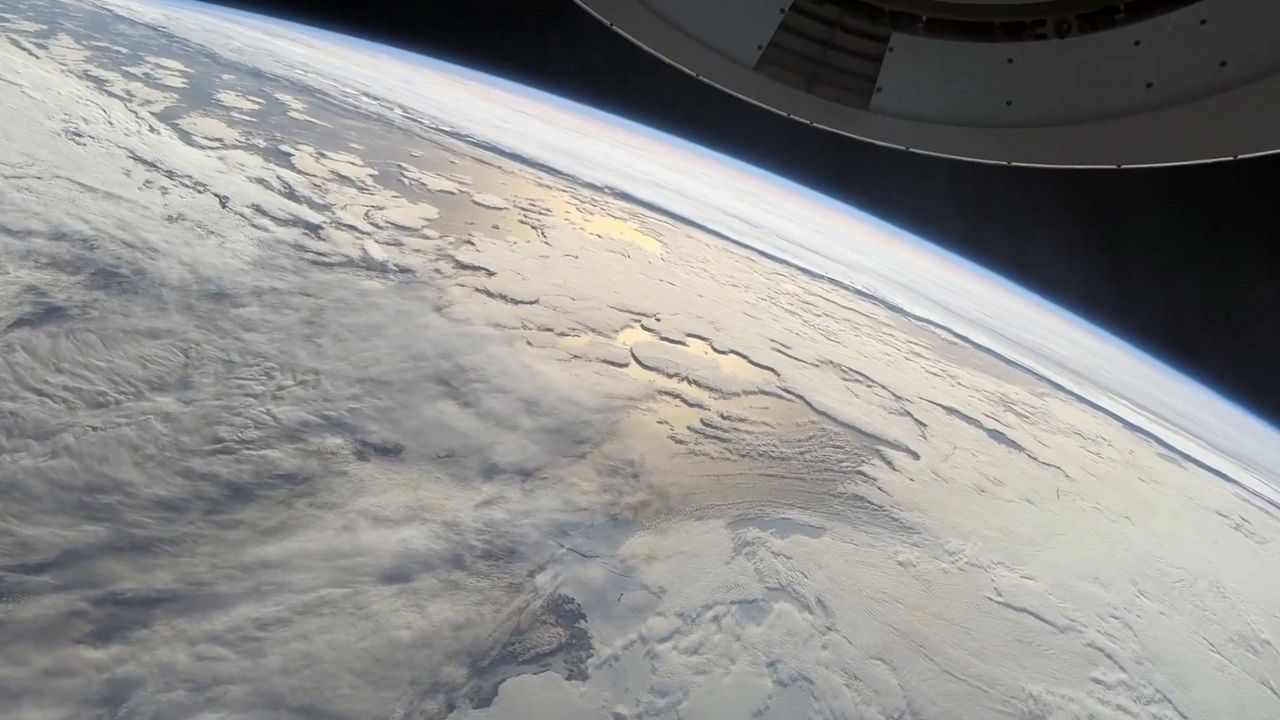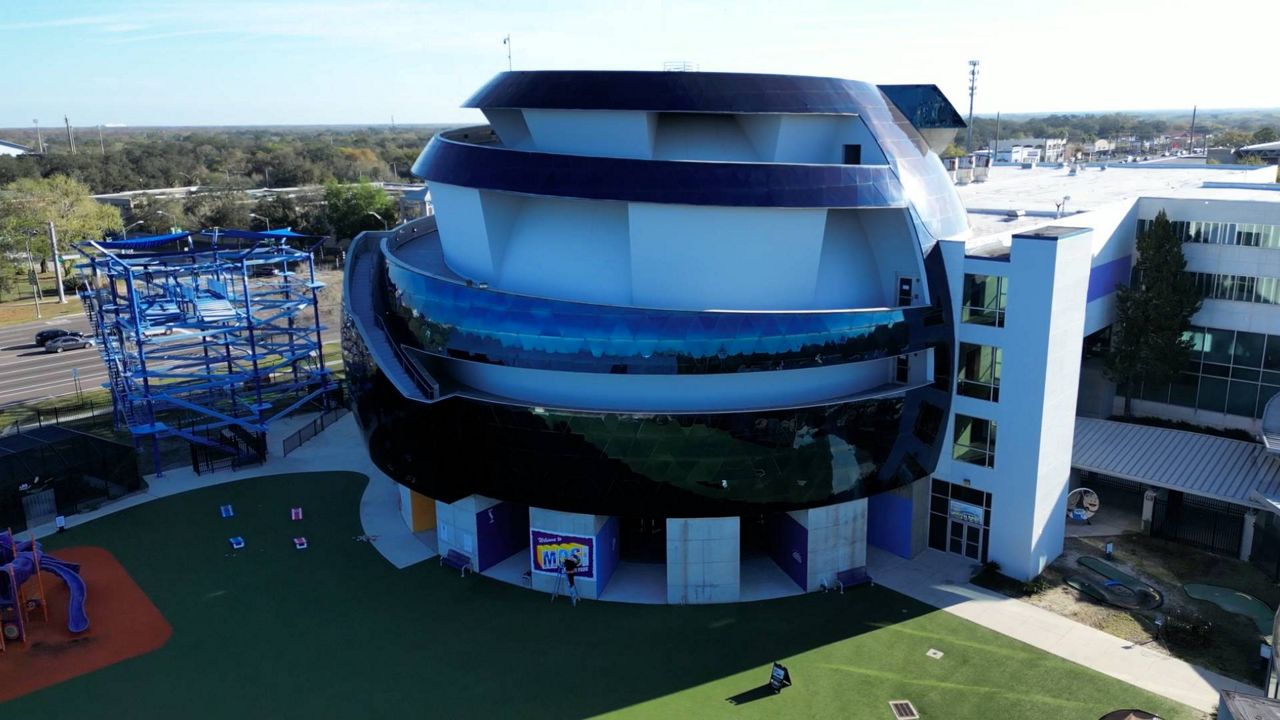CAPE CANAVERAL AIR FORCE STATION, Fla. — Amid parting storm clouds and a setting sun, SpaceX Falcon 9 rocket lifted off from Cape Canaveral Air Force Station on Tuesday evening carrying an Israeli communications satellite.
- Amos 17 satellite will provide communications services
- Falcon 9's first stage booster won't be recovered
- Rocket took off from Cape Canaveral at 7:23 p.m. ET
- RELATED:
- LAUNCH SCHEDULE: When is the next rocket launch from Florida?
- WATCH LIVE: ▼ Watch a live stream of the launch on your computer or on the go ▼
The rocket blasted off at 7:23 p.m. ET. from Space Launch Complex 40.
There is a lot riding on SpaceX for this launch: The last time an Amos satellite was set to launch in 2016, the rocket exploded during a test, destroying the $200 million satellite aboard.
Now, the company is sending the Amos 17 into space. It's an advanced communications satellite owned by Spacecom, an Israeli company. The satellite will provide communication services to the Middle East and Africa. The life expectancy of the satellite is more than 15 years, and it's worth about $250 million.
The Falcon 9's first stage booster has flown twice before, and for this launch, the first stage booster won't be recovered. The rocket needs all the fuel possible to launch the 6.5-metric-ton satellite into orbit, so there won't be enough left to bring the booster back.
Weather conditions were bleak most of the day, with dark storm clouds shrouding the launch area earlier Tuesday. But the skies had cleared and winds calmed down in time for the launch, which was originally scheduled for 6:53 p.m.
There was an investigation in to what caused the September 2016 explosion. SpaceX concluded that one of the composite overwrapped pressure vessels used to store liquid helium failed. The failure was likely caused by a buildup of oxygen between the vessel’s lining and overwrap, the report said. Investigators also concluded that loading temperatures of the helium were cold enough to create oxygen, increasing the chances of oxygen becoming trapped.
That explosion marked the end of the engine tests being performed with a payload on board.
It's a quick turnaround for launches on Florida's Space Coast this week: A United Launch Alliance Atlas V rocket is scheduled to blast off from Pad 41 at Cape Canaveral Air Force Station at 5:44 a.m. ET Thursday.






